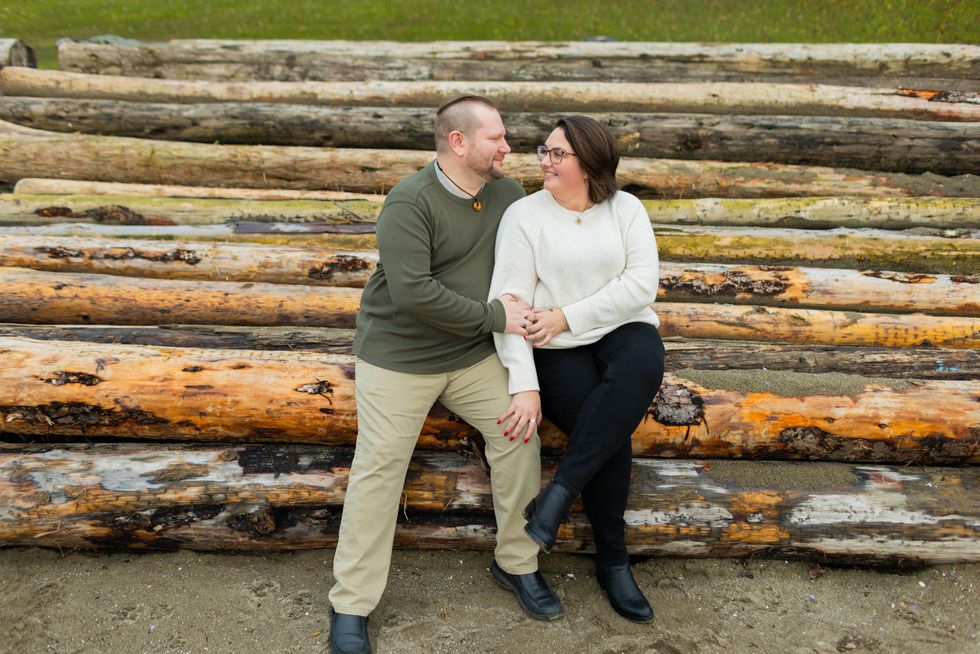
As told Erica Rimlinger
April 13-19, 2025 is STI Awareness Week.
When I first saw the injuryI knew it seemed familiar. After working in HIV and prevention of sexually transmitted infection (STIs), I had seen enough images to recognize herpes. When the first pain signs appeared, I was confused and thought: «That can’t be fine.» Then, I followed the advice that I had often given customers: I used a hand mirror to see more closely. The mirror injury was definitely, without a doubt, a textbook image of a herpes lesion. I couldn’t believe it.
I immediately called my gynecologist. When I saw her, my outbreak had exploded to the herpes version of a scenario in the worst case. The nervous pain fired spontaneously from my back to the tips of my feet fingers. The outbreak triggered pelvic inflammatory disease, and swelling caused the urinity to be painful and difficult. I did not leave my house for days.
To my surprise, my gynecologist minimized my situation and said: «Maybe it’s not Herpes.» I assured him that I did not have to minimize my concerns. I talked to people all the time about STIs. I was the person who delivered condoms and lubricants in correctional facilities and rehabilitation centers. I was the person who showed SRISAs of STIs. I had seen Herpes. I met Herpes. And now, he seemed to be formally familiar with herpes.
After taking an inductor swab of an injury, my doctor told me that I would have to wait several days to obtain the results of the tests. Because she had a lot of pain, she started the treatment immediately, giving me an antiviral. The following week, his office called. After having worked as an employee of the STIs that gave people their test results, he knew that the call script. If the result were positive, they would not give me my results by phone. I was asked to return to the office to discuss them in person with my doctor.
While I was not surprised to know that I would be making a visit to the doctor, I was surprised by my doctor’s indifferent attitude towards the diagnosis. I just learned that I had an incurable STI that would affect my health and my relationships for the rest of my life, and my doctor told me: «Don’t worry! You can still have children.» If I had asked, I would have known that I never planned to have children, but planned to continue having relationships. She did not ask about my sexual history or gave me information on how to reveal my diagnosis to past and future couples. «Don’t worry about that,» he said. «It will be clarified.» She gave me recharges in the outbreak prevention medicine and left me alone with a raw and burning shame.
I felt like a professional fraud. How are Is supposed to prevent STIs in the community if I can’t avoid them in myself? Through my fog of shame and grimace, I did not give the grace and empathy I gave to my clients. And could have taken some comfort of the statistics surrounding the ITS. The fact is that the use of condom avoids STIs only 95% of the time when used perfectly. The only 100% guarantee against STIs is withdrawal.
Although Condoms significantly reduce contactThey do not cover every part of the body involved in sex. In addition, you don’t have to experience an active outbreak for Give someone herpesAnd if you never experience an outbreak, you may never know you have it. Even ITS tests do not regularly include herpes detection.
I would become one of the almost 1 out 5 people Who has been diagnosed with Herpes, and although he never despised a client, he had never considered how much they could be despising.
Professional shame joined a sense of personal shame and fear while preparing myself to call my old sexual partners. I was in a moment in my life where I was dating regularly, so I didn’t know how or when I contracted herpes.
First I called my most recent relationship partner. He was someone who still considered a close friend. While marking, I worried that it was a great disappointment for him. What happens if I didn’t want to be friends? What happens if I was disgusted with me or angry?
I’m glad I called it first. I exhaled completely when it reacted with support and kindness. It made me feel that there was nothing broken, dirty or bad in me. His reaction was exactly what he needed to increase the nerve to continue calling the former partners. Wishing to have a strategy or a script, I confused the remaining calls. Some were fine: others did not.
I could not reopen the applications and the date for several months after my diagnosis. Finally, I overcome my fear and decided that I would share my diagnosis after we moved from the application to send text messages, but before having gone to a date in person. My first appointment in person after my diagnosis told me that I was fine with my herpes when I revealed it by text message, but I wondered, seriously, if I could catch the herpes when our fully dressed legs were accidentally touched under the table in the restaurant. It was our last date.
 Amanda in Vancouver with her partner, Keith in 2024 (Photo/Kayla Beiler photography)
Amanda in Vancouver with her partner, Keith in 2024 (Photo/Kayla Beiler photography)
That experience, although strange and disappointing, caused an important change in my perspective. This is my diagnosis and I have the knowledge, so my new dating rule was this: I would not allow anyone to make me feel less than. My diagnosis was part of my life, but I wasn’t me. For the first time, I felt that I was taking control of the narrative.
Almost four years after my diagnosis, during a working meeting, while we discussed the need to find more defenders of patients with STIs to share their stories, I wondered if I should leave as a patient. I went to my boss’s office after the meeting and said: «I will share my story.» I was a little nervous for sharing my diagnosis, especially because, earlier that day, it allowed me to be taken when I won a prize for queer women. (I had not been hiding my sexual orientation or even my STIs diagnosis: I had simply not discussed these issues at work before). My boss agreed to let me tell my story, and with my published blog, I felt that I had taken the property of my diagnosis.
When Herpes diagnosed me for the first time, I felt personally and professionally. I wondered how love would find, and if it was even worth loving. That mentality is so far from the truth of my life now. I have an incredible partner, and we have created a great life together. I will not minimize my herpes diagnosis: it is significant and can be devastating. Even with medications, shoots can occur. But I hope that everyone with this diagnosis knows that it will not prevent you from obtaining what you want in life, and will not prevent you from loved and loved.






